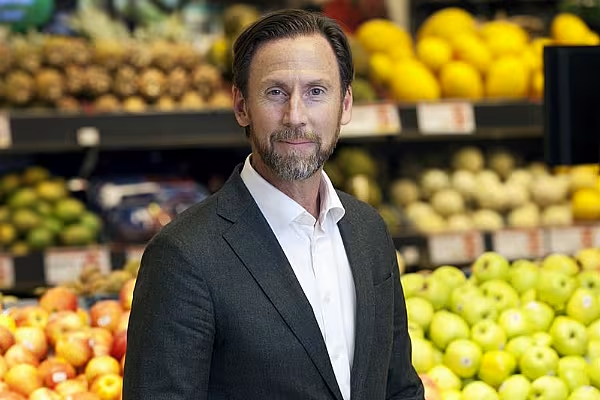The chief executive of Swedish retail group Axfood has described 2017 as an 'eventful year with outstanding sales growth.'
In the group's annual report, he points to acquisitions, new stores, and an accelerated e-commerce rollout as drivers of growth, with senior leadership changes also marking a significant twelve months for the company.
"In summing up my first year, I find the high level of energy and many activities throughout the group to be striking," said Klas Balkow, who was appointed CEO at the beginning of 2017.
"Through a series of acquisitions we have strengthened and broadened our portfolio," he added. "In our management, we have fine-tuned and developed our plans and strategies so that we can also continue to be successful in the future."
Axfood carried out four acquisitions during the year, including Saba’s fruit and vegetable warehouse operations, online retailer MAT.se, meal provider Middagsfrid, and a stake in Eurocash with Norgesgruppen.
The group also opened ten new stores, more than doubled its e-commerce offering, and partnered in the formation of online pharmacy company Apohem.
Looking ahead, Axfood plans to open four to eight new stores in 2018, and extend its online grocery service to 25 new stores in ten cities across the country.
Sales Growth
Earlier this month, Axfood reported that it had achieved consolidated net sales of SEK 45.97 billion in 2017, representing an increase of 6% year on year.
Overall, food retail sales in Sweden are estimated to have reached approximately SEK 260 billion last year, with growth of 2.3%, according to preliminary data from Statistics Sweden and HUI Research.
"During 2017, Axfood’s growth considerably outpaced the market as a whole," said Balkow. "Our clearly stronger position in Sweden’s food retail market can be credited both to company acquisitions and high organic sales growth."
The group operates the Willys and Hemköp supermarket chains, as well as wholesaler Dagab and B2B business Axfood Snabbgross, in addition to Tempo, Handlar’n and Direkten, which are retailer-owned.
It says that all of these segments saw an increase in sales last year through a greater number of customer visits and a higher average ticket value.
In particular, over half of sales came from Willys, which is Sweden's leading discount grocery chain with a network of 199 stores. The unit saw sales of SEK 25.41 billion in 2017, with operating profit growing by 10.6%.
Changing Market
Axfood is currently the second largest grocery retail comapny in the Swedish market, however, the group says that it must continue to develop its business and adapt to changing industry trends if it wants to retain this position.
"The year’s performance confirms that we stand strong today, but this does not mean that we can stand still," added Balkow. "The market is currently going through major changes that we must adjust to."
In particular, he highlighted three areas that the group is focusing on going forward – convenience foods, sustainability, and digitalisation.
"With changes come opportunities as well as challenges," said Balkow. "Since we are a family of several different food concepts, we have favourable prospects to address these changes. Through our various concepts we can profile ourselves based on the chains’ specific target groups and meet their specific needs."
"Axfood has a strong foundation to build further upon," he concluded. "To meet the needs of tomorrow’s customers, we will need to further develop ourselves."
© 2018 European Supermarket Magazine – your source for the latest retail news. Article by Sarah Harford. Click subscribe to sign up to ESM: The European Supermarket Magazine.














